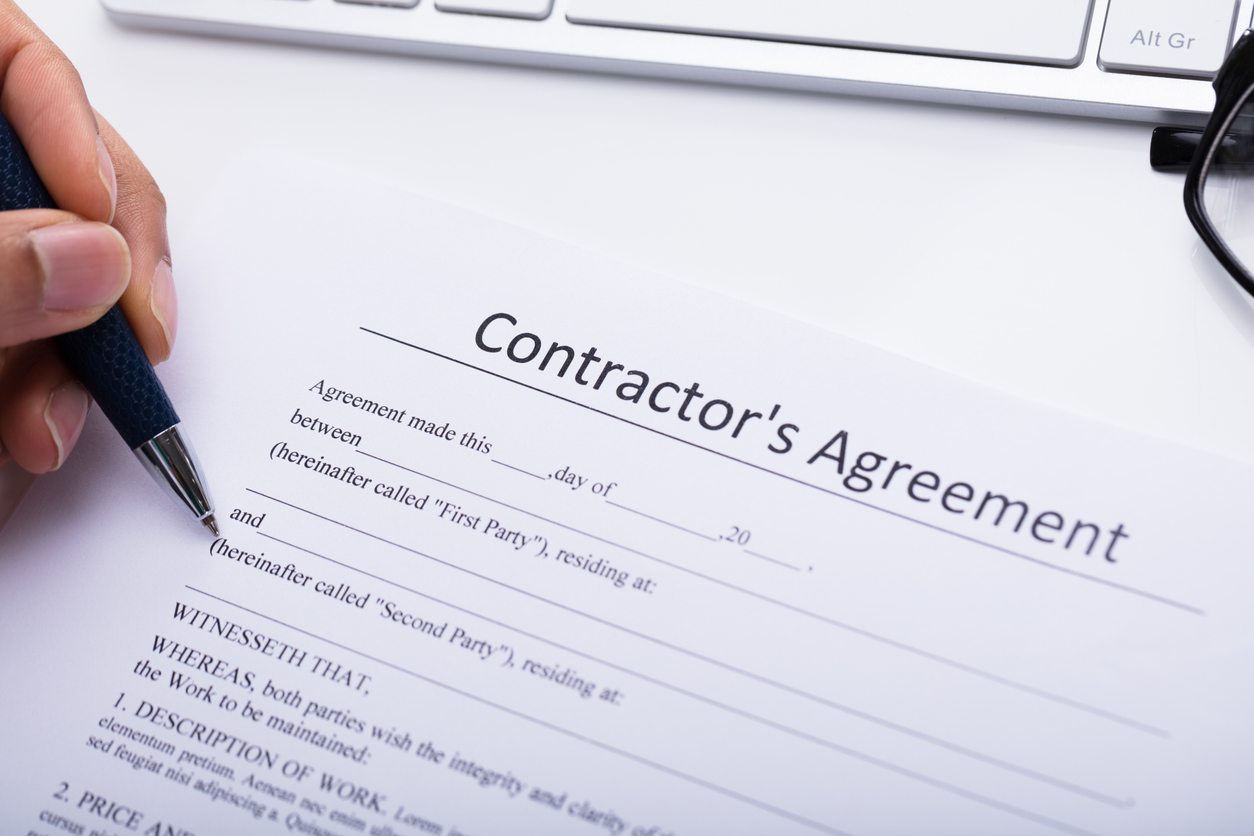All adjusters, whether company, independent, or public, have significant ethical obligations in Florida. Indeed, these adjusters even have an obligation to turn each other into the Department of Financial Services. The failure to do so is, by itself, a breach of the adjuster’s ethical obligations:
(g) An adjuster shall promptly report to the Department any conduct by any licensed insurance representative of this state which violates any provision of the Insurance Code or Department rule or order.
Mary Fortson and I were recently reviewing some matters raised by the leadership of the National Association of Public Insurance Adjusters and Florida Association of Public Insurance Adjusters, when I asked her to provide me the Florida regulations pertaining to these ethical rules. Mary is the General Counsel to the Florida Association of Public Insurance Adjusters, and we were certain that many of the conduct issues being raised by the leadership of these organizations were covered in these rules. The violation of which subjects an adjuster to severe penalties, including the possible loss of license. These rules were made to protect the public and consumers of insurance as stated in the first part of the ethical code:
Code of Ethics. The work of adjusting insurance claims engages the public trust. An adjuster shall put the duty for fair and honest treatment of the claimant above the adjuster’s own interests in every instance.
Claims managers need to make certain that they are also adhering to this law. Public adjusters who find company and independent adjusters breaking these rules but do not promptly report the violations to the Department of Financial Services also violate the rules. I recently heard a claims manager suggest that his adjusters had a right to immediate access to the damaged property. Certainly, most policyholders welcome prompt investigation and evaluation, but because of some abuses, access into a policyholder’s home or business is covered in these ethical provisions:
(s) A company adjuster, independent adjuster, attorney, investigator, or other person acting on behalf of an insurer that needs access to an insured or claimant or to the insured property that is the subject of a claim shall provide at least 48 hours notice to the insured or claimant prior to scheduling a meeting with the claimant or an on-site inspection of the insured property. The insured or claimant may deny access to the property if this notice has not been provided.
The Florida Association of Public Insurance Adjusters has a Code of Ethics as well. It also has a committee that reviews every complaint regarding its members. I suggest that when company or independent adjusters report ethical violations to the Department of Financial Services that they also copy the violation to FAPIA. Here is the FAPIA Code of Ethics:
All members of FAPIA are required to abide by the following Rules of Professional Conduct and Ethics. This better enables us to ensure that our clients, members of the public, are able to receive proper and ethical treatment at all times.
The members shall conduct themselves in a spirit of fairness and justice to their clients, the Insurance Companies, and the public.
Members shall refrain from improper solicitation.
No misrepresentation of any kind shall be made to an insured or to the Insurance Companies.
Commission rates shall be fair and equitable, and strictly in accordance with the prevailing laws or regulations of the Florida Insurance Department.
Members shall conduct themselves so as to command respect and confidence. They shall work in harmony with one another, with their clients, and the Insurance Companies’ representatives, so as to foster a cordial and harmonious relationship with all branches of the insurance business, and with the general public.
Members must be fitted, by the knowledge and experience, for the work they undertake. They must not endanger the interests of the public adjusting profession, or risk injustice to insureds or to the Insurance Companies, by attempting to handle losses or claims for which they are not qualified, and for which they cannot find competent technical assistance.
Members shall not engage in the unauthorized practice of law.
Members shall not acquire any interest in salvaged property or participate in any way, directly or indirectly, in the reconstruction, repair, or restoration of damaged property, except with the knowledge, consent and permission of the insured.
Members shall be cooperative and assist one another in every possible way.
Members shall not disseminate or use any form of agreement, advertising, or any printed matter that is harmful to the profession of public adjusting, or which does not comply with the rules and regulations of the Florida Insurance Department, or which might subject public adjusting and public adjusters to criticism or disrespect.
The enforcement of ethical rules by adjusters leads to a recurrent theme that has to be addressed by Alex Sink and the people operating the Department of Financial Services. Alex Sink is a wonderful public servant. Many in the insurance industry are wholeheartedly supporting her quest to become Florida’s next governor. And, when I hear adjusters and their managers say that when they follow the law, report serious violations of ethical laws to the Department of Financial Services, but the Department essentially says that they are “too busy” to do anything about it, I know she will make a change or change the people who are not doing their job. The California Insurance Commissioner was once sued for not fulfilling the statutory duties of that job.
Somebody needs to find out if our paid regulators are either too lazy or too overworked to do the important job of enforcing the laws. This is a serious matter, but many have been complaining about the lack of action by the Department of Financial Services for far too long. Something has to change soon.
Good, honest, and “playing by the rules” adjusters need to know that their profession and the state will hold wrongdoers accountable for breaking rules. Otherwise, why have any rules?
Here are the ethical requirements of adjusters in Florida:
69B-220.201. Ethical Requirements.
(1) Definitions. The following definitions shall apply for purposes of this rule:
(a) “Adjuster,“ when used without further specification, includes all types and classes of insurance adjusters, (company, independent, and public), subject to Chapter 626, Florida Statutes, regardless of whether resident or nonresident, and whether permanent, temporary, or emergency licensees.
(b) “Client“ includes both clients and potential clients; and means any person who consults with or hires an adjuster to provide adjusting services.
(c) “Department“ means the Florida Department of Financial Services.
(d) “Person“ includes natural persons and legal entities.
(2) Violation.
(a) Violation of any provision of this rule shall constitute grounds for administrative action against the licensee.
(b) A breach of any provision of this rule constitutes an unfair claims settlement practice.
(3) Code of Ethics. The work of adjusting insurance claims engages the public trust. An adjuster shall put the duty for fair and honest treatment of the claimant above the adjuster’s own interests in every instance. The following are standards of conduct that define ethical behavior, and shall constitute a code of ethics that shall be binding on all adjusters:
(a) An adjuster shall: not directly or indirectly refer or steer any claimant needing repairs or other services in connection with a loss to any person with whom the adjuster has an undisclosed financial interest, or who will or is reasonably anticipated to provide the adjuster any direct or indirect compensation for the referral or for any resulting business.
(b) An adjuster shall treat all claimants equally.
1. An adjuster shall not provide favored treatment to any claimant.
2. An adjuster shall adjust all claims strictly in accordance with the insurance contract.
(c) An adjuster shall not approach investigations, adjustments, and settlements in a manner prejudicial to the in-sured.
(d) An adjuster shall make truthful and unbiased reports of the facts after making a complete investigation.
(e) An adjuster shall handle every adjustment and settlement with honesty and integrity, and allow a fair adjustment or settlement to all parties without any remuneration to himself except that to which he is legally entitled.
(f) An adjuster, upon undertaking the handling of a claim, shall act with dispatch and due diligence in achieving a proper disposition of the claim.
(g) An adjuster shall promptly report to the Department any conduct by any licensed insurance representative of this state which violates any provision of the Insurance Code or Department rule or order.
(h) An adjuster shall exercise extraordinary care when dealing with elderly clients to assure that they are not disadvantaged in their claims transactions by failing memory or impaired cognitive processes.
(i) An adjuster shall not negotiate or effect settlement directly or indirectly with any third-party claimant repre-sented by an attorney, if the adjuster has knowledge of such representation, except with the consent of the attorney. For purposes of this subsection, the term “third-party claimant“ does not include the insured or the insured’s resident relatives.
(j) An adjuster is permitted to interview any witness, or prospective witness, without the consent of opposing counsel or party. In doing so, however, the adjuster shall scrupulously avoid any suggestion calculated to induce a witness to suppress or deviate from the truth, or in any degree affect the witness’s appearance or testimony during deposition or at the trial. If any witness making or giving a signed or recorded statement so requests, the witness shall be given a copy of the statement.
(k) An adjuster shall not advise a claimant to refrain from seeking legal advice, nor advise against the retention of counsel to protect the claimant’s interest.
(l) An adjuster shall not attempt to negotiate with or obtain any statement from a claimant or witness at a time that the claimant or witness is, or would reasonably be expected to be, in shock or serious mental or emotional distress as a result of physical, mental, or emotional trauma associated with a loss. The adjuster shall not conclude a set-tlement when the settlement would be disadvantageous to, or to the detriment of, a claimant who is in the traumatic or distressed state described above.
(m) An adjuster shall not knowingly fail to advise a claimant of the claimant’s claim rights in accordance with the terms and conditions of the contract and of the applicable laws of this state. An adjuster shall exercise care not to engage in the unlicensed practice of law as prescribed by the Florida Bar.
(n) A company or independent adjuster shall not draft special releases called for by the unusual circumstances of any settlement or otherwise draft any form of release, unless advance written approval by the insurer can be demonstrated to the Department. Except as provided above, a company or independent adjuster is permitted only to fill in the blanks in a release form approved by the insurer they represent.
(o) An adjuster shall not undertake the adjustment of any claim concerning which the adjuster is not currently competent and knowledgeable as to the terms and conditions of the insurance coverage, or which otherwise exceeds the adjuster’s current expertise.
(p) No person shall, as a public adjuster, represent any person or entity whose claim the adjuster has previously adjusted while acting as an adjuster representing any insurer or independent adjusting firm. No person shall, as a company or independent adjuster, represent him or herself or any insurer or independent adjusting firm against any person or entity that the adjuster previously represented as a public adjuster.
(q) A public adjuster shall not represent or imply to any client or potential client that insurers, company adjusters, or independent adjusters routinely attempt to, or do in fact, deprive claimants of their full rights under an insurance policy. No insurer, independent adjuster, or company adjuster shall represent or imply to any claimant that public adjusters are unscrupulous, or that engaging a public adjuster will delay or have other adverse effect upon the settlement of a claim.
(r) No public adjuster, while so licensed in the Department’s records, may represent or act as a company adjuster, independent adjuster, or general lines agent.
(s) A company adjuster, independent adjuster, attorney, investigator, or other person acting on behalf of an insurer that needs access to an insured or claimant or to the insured property that is the subject of a claim shall provide at least 48 hours notice to the insured or claimant prior to scheduling a meeting with the claimant or an on-site inspection of the insured property. The insured or claimant may deny access to the property if this notice has not been provided.



